Letter from Africa: Why Kenya has banned on-air sex
- Published
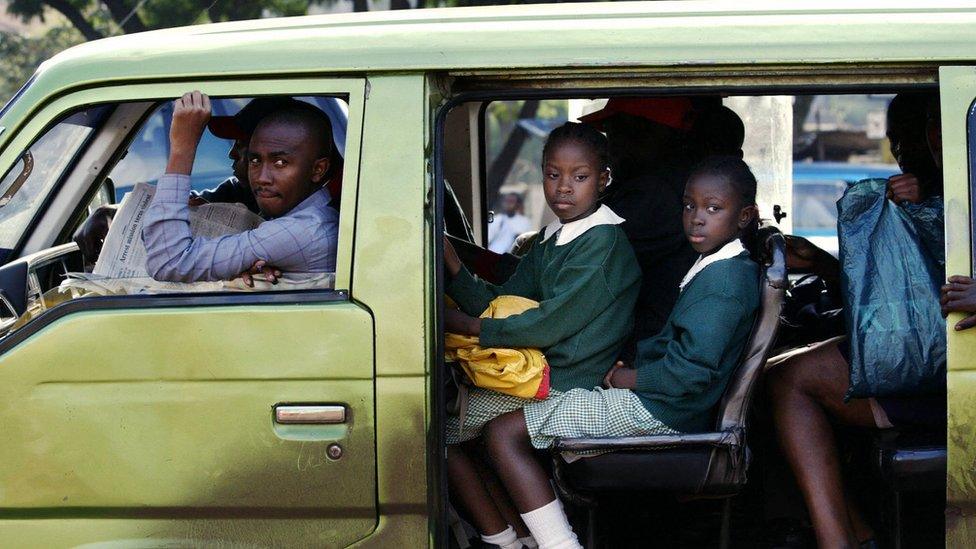
Certain types of programming will be banned during the daytime to protect children
In our series of letters from Africa, journalist Joseph Warungu reflects on the recent decision by Kenyan authorities to ban sex talk on radio.
The Kenyan government is trying to ban sex on air.
They argue that we're having it at the wrong time.
If it's after five in the morning, it's too late. And if it's before 10 at night, it's too early.
So when is a good time?
It has to be strictly in the hours of darkness - between 22:00 and 05:00.
But why do it in the dark?
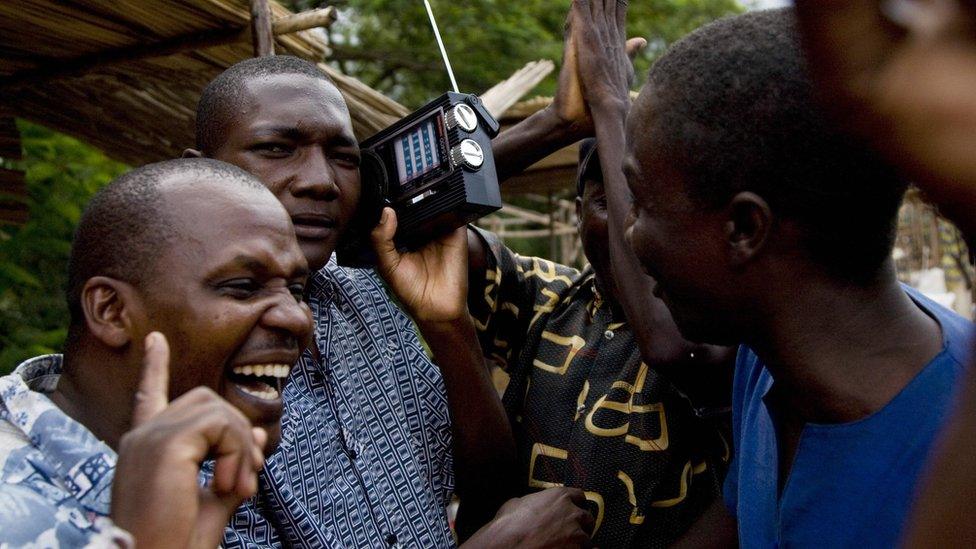
Radio talk shows with adult themes are very popular in Kenya
Well, because children are expected to be fast asleep at that time, and therefore safe from adults with creative bedtime activities.
If you try it during the day, you could lose your licence.
No, I don't mean your licence to have sex! And where would you get that kind of licence from anyway?
What I mean is, if you're a broadcast station, especially radio, and you want to indulge in or seduce your listeners to engage in adult content, you'll now need to choose your hour carefully.
This new state of affairs has come about as a result of new programme guidelines, issued by the Communications Authority of Kenya - the body responsible for licensing and regulating broadcast media.
Some of the most widely listened to radio talk shows in Kenya involve candid, and sometimes graphic, conversations about sex and relationships.
We've heard from women who move with married men, advising the wives who are cheated on, and giving them tips on how to successfully keep their husbands on a short leash.
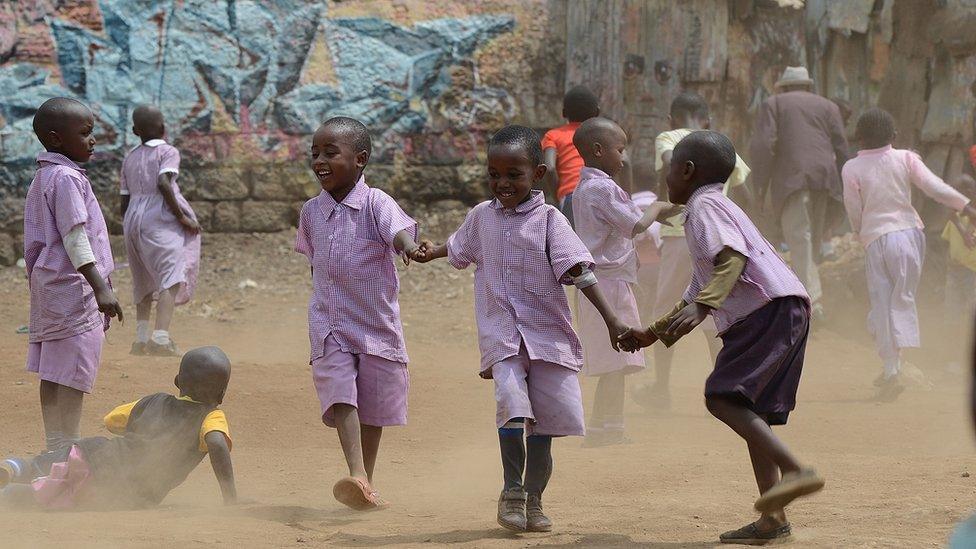
One of the key aims of the new is to protect children from inappropriate programmes
We've also heard unusual stories of women who sleep with dead bodies, ostensibly to create or increase their wealth.
On air too have been male escorts, giving an insight into their busy and lucrative careers, keeping married women "happy".
These shows are popular, but they don't appeal to everyone.
In the past, groups of radio listeners, especially parents, have organised petitions against some the offending shows and their presenters.
The timing of these controversial shows can be a big turn-off.
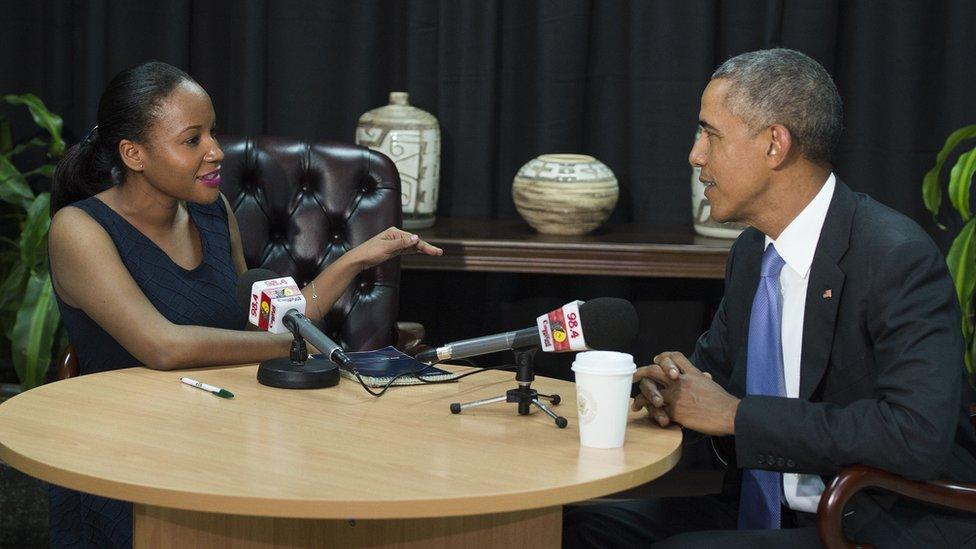
Not all Kenyan radio stations fill their schedules with hard-hitting political interviews
Some of the passenger mini-buses or matatus, happily tune their radios to channels broadcasting this adult content in their breakfast shows.
You can imagine what colour your face would turn, if you happened to be seated next to your mother-in-law in a matatu, and the radio programme was loudly discussing the merits or otherwise of certain sizes of the male genitalia.
And so the broadcast media regulator has decided enough is enough - sex must be regulated.
Or rather adult content must be restricted to adult hours, in order to preserve the sanctity of homes and families in Kenya.
The media have until June to clean up the airwaves and comply with the new programme code, that also targets advertising that "glorifies" alcohol.
But it's not just sex talk that will be regulated.
Politicians' mouths too will be sealed to protect the ears of the electorate from harm.
The Communications Authority wants to restrain the media from showing politicians abusing and threatening others in political rallies.
This guideline will be a tough one to implement.
How do you decide what is abuse and what is political grandstanding?

Politicians will be required to watch their step under the new laws
Where do you draw the line between sensibility and censorship in the media?
And what about those who attend the political rallies and are therefore directly exposed to the "threats" and "abuse"?
Unsurprisingly, opinion regarding the ban on sex talk is divided.
Some feel the state is now turning into a nanny.
Others, however argue that the authorities has been acting like an overindulgent granny, letting the media get away with too much.
Questions have also been raised regarding the timing of these new guidelines.

Joseph Warungu:

We might soon live in a country where the police decide who makes it to heaven

The Communications Authority argues that the guidelines were developed in 2015, and that it is issuing the code now following the conclusion of court cases, which had contested its mandate to regulate broadcasting services.
However, every Kenyan knows that although the next general election is not until mid-2017, the unofficial campaign has already started.
Some are therefore interpreting these new media guidelines and other government moves to regulate religious organisations, as attempts to control the space for political discourse and the free expression of ideas.
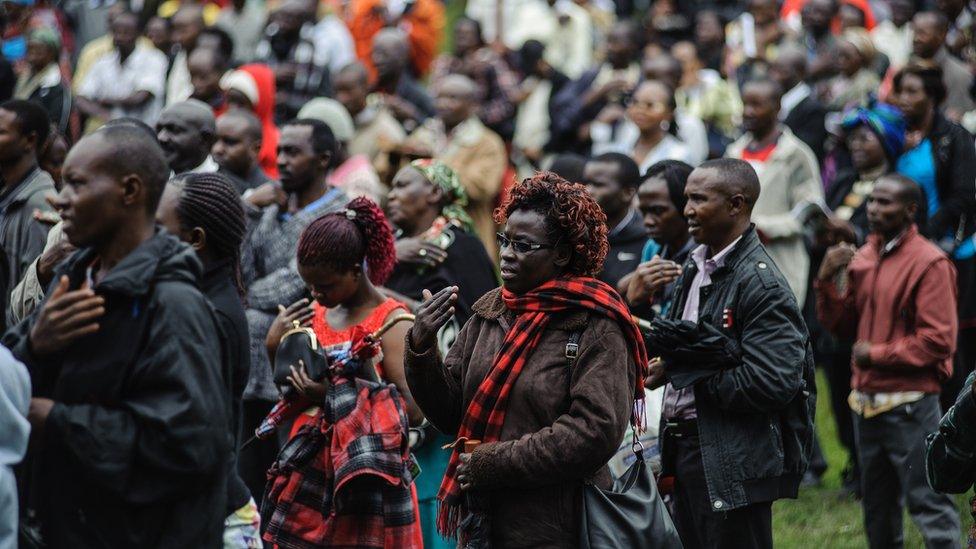
Preachers have huge influence in a country where many people are highly religious
Following a huge public outcry, President Kenyatta on Tuesday instructed his Attorney General to hold wider consultations with religious organisations, before pressing ahead with new rules to regulate the clergy.
If the new code becomes law, religious groups must register their members and clergy have to undergo theological teaching.
The men and women who preach the good word to save wayward souls will also be required to obtain a certificate of good conduct from the police.
We might soon live in a country where the police decide who makes it to heaven and where the government approves when it is suitable to dive under the sheets for intimacy.
